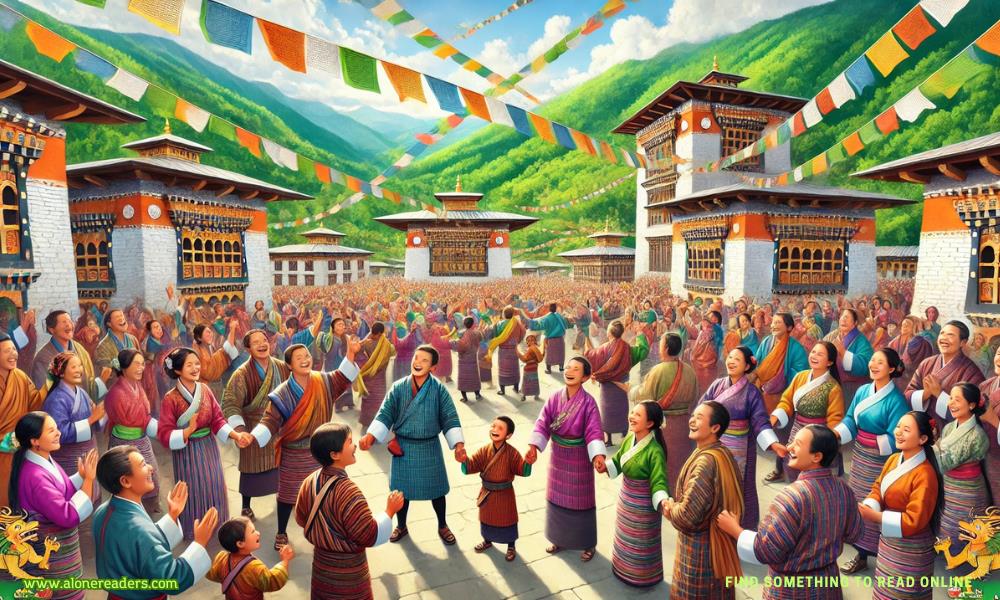
In the enchanting Himalayan kingdom of Bhutan, nestled between India and China, time is measured not just by the ticking of clocks but by traditions deeply rooted in simplicity and communal values. One of the most fascinating aspects of Bhutanese culture is its approach to birthdays. Unlike in many other parts of the world where personal birthdays are significant milestones marked with celebrations, cakes, and candles, Bhutan takes a remarkably unique path. In this serene nation, individual birthdays are rarely acknowledged. Instead, everyone collectively adds a year to their age on the first day of January.
This practice is not just an anomaly but a reflection of Bhutan’s cultural fabric, where community often takes precedence over the individual. The concept of recognizing personal birthdays is relatively new in Bhutan and largely influenced by globalization. In rural areas especially, people often do not know the exact date of their birth. Birth certificates, which are standard in many countries, were historically uncommon in Bhutan, especially for older generations. As a result, many Bhutanese simply approximate their age, and the notion of celebrating an individual birthday has remained foreign to their traditions.
The idea of aging collectively every New Year stems from practicality and simplicity. It spares individuals the need to track exact dates of birth, which could be challenging in rural regions where record-keeping was sparse. This communal approach fosters a sense of unity and reinforces the Bhutanese way of life, which prioritizes harmony and collective well-being. Rather than focusing on individual milestones, the society embraces a shared journey through time, celebrating the collective passage of years.
This tradition aligns with Bhutan's broader cultural values. The country is famously known for its emphasis on Gross National Happiness (GNH), a philosophy that measures the nation's success not through economic growth but by the well-being of its people. GNH encourages Bhutanese citizens to focus on spiritual, emotional, and communal fulfillment rather than materialism or individual accomplishments. The collective birthday tradition fits seamlessly into this philosophy, emphasizing shared experiences and mutual respect over personal celebrations.
For many Bhutanese, the lack of emphasis on individual birthdays is not a loss but a reflection of a deeper sense of contentment. Instead of focusing on themselves, people are encouraged to engage with their community and nurture relationships. January 1st becomes a day of mutual acknowledgment, a moment to reflect on collective growth and shared aspirations. It is not uncommon for families and friends to exchange well-wishes for the new year, expressing gratitude for one another and for the year that has passed.
However, with modernization and exposure to global cultures, younger generations in Bhutan are beginning to adopt the practice of celebrating personal birthdays. In urban areas, especially among families with access to modern education and media, children and young adults often mark their birthdays with small gatherings or cakes, much like in the rest of the world. This blending of old and new highlights the adaptability of Bhutanese culture, which manages to retain its traditional core while embracing change.
Still, the traditional practice of communal aging on January 1st continues to hold strong in the hearts of many Bhutanese, especially those in rural regions. It serves as a reminder of the country's unique perspective on time and aging—one that prioritizes togetherness over individual recognition. In a fast-paced world that often emphasizes personal achievements and individual milestones, Bhutan's collective approach to aging offers a refreshing contrast. It reminds us of the beauty of simplicity and the power of shared experiences.
In Bhutan, birthdays are not just about celebrating oneself; they are about celebrating the journey of life with others. Each January 1st, as the nation collectively turns a year older, Bhutanese people pause to reflect on the passage of time, the strength of their communities, and the bonds that tie them together. This tradition, while unusual to outsiders, encapsulates the essence of Bhutanese culture—one that cherishes unity, harmony, and the collective spirit of its people.